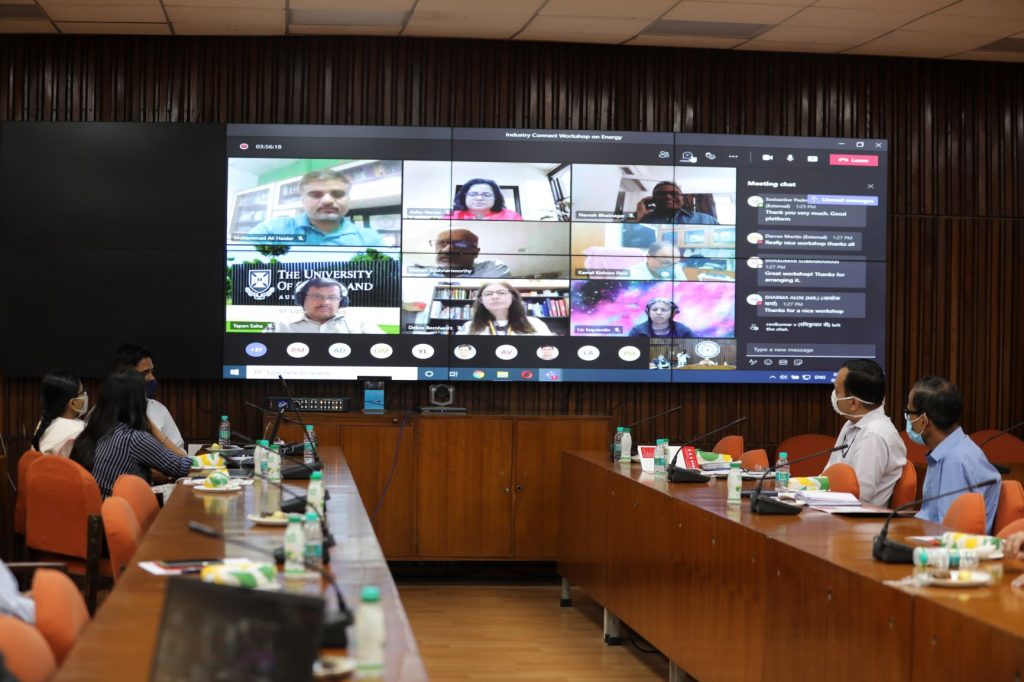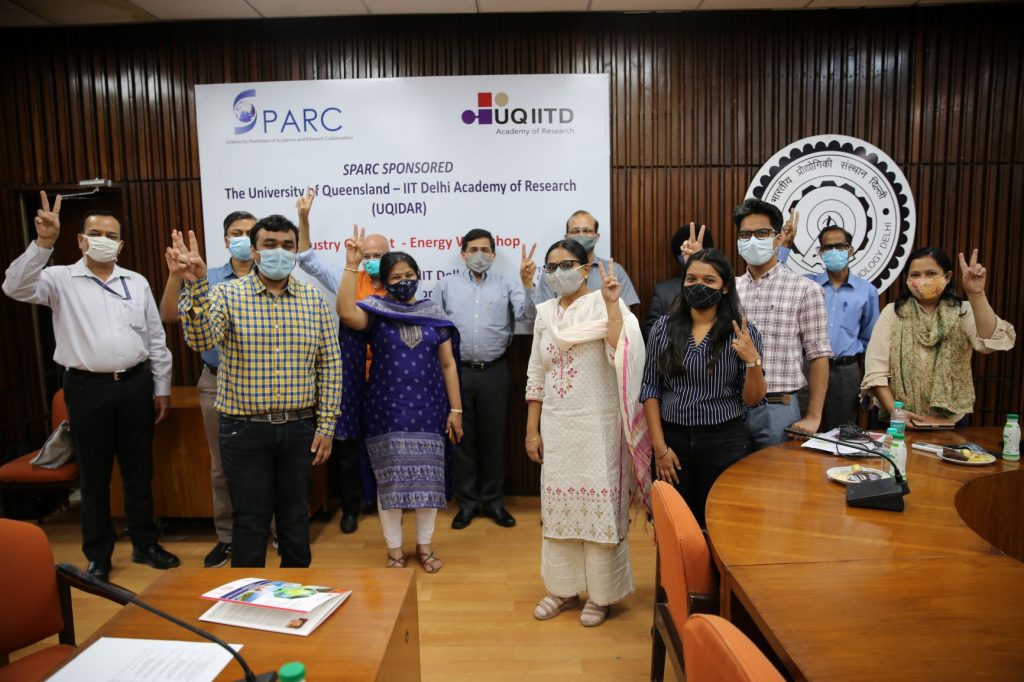
The first University of Queensland-IIT Delhi Academy of Research (UQIDAR) Industry Connect Workshop on Energy, sponsored by SPARC, was held on Thursday, 8 April 2021.
Energy is a critical issue for the energy industry, researchers and academics. Increasing energy demand poses enormous challenges, which are compounded by climate change.
Cutting edge developments in energy research, including renewable energy and clean fossil fuels, and other complex technologies can only be developed through collaboration.

The hybrid workshop was very well attended with 107 delegates. The enthusiasm and energy of all the participants was evident throughout the workshop. The workshop created enormous interest in the energy industry community from India and Australia.
The Energy Workshop was chaired by four leaders in higher education in India and Australia:
- Dr Rajeev Shorey, UQIDAR CEO
- Professor Nidhi Jain, Professor-in-charge of the UQIDAR
- Dr R. R. Sonde, Visiting Professor, IIT Delhi and former Executive VP (Technology & Innovation), Thermax Ltd
- Professor Mohan Krishnamoorthy, Pro-Vice-Chancellor (Research Partnerships), UQ, Australia, who presented the opening remarks.
The workshop was hosted by IIT Delhi Director, Professor Ramgopal Rao, and Deputy Director Professor Ashok Ganguli.
The workshop included talks by thought leaders in India, such as leading Indian physicist and IIT Delhi Chairperson Board of Governors, Dr R. Chidambaram, and Padma Vibhushan awardee Dr Anil Kakodkar, former chairperson of the Atomic Energy Commission of India.
Workshop participants included faculty members from IIT Delhi and UQ, experts from the energy industry in India and Australia, relevant ministries/departments of the Government of India, and other energy experts.
The topics discussed during the Workshop were as follows:

- Hydrogen energy transition: production of hydrogen using renewable and fossil energy with CO2 capture and its conversion to fuels and chemicals.
- Biomass energy conversion to higher value products such as carbon, composites, alcohols and other fuels.
- Renewable energy (solar, wind and others), including new pathways to lowering costs using state-of-art developments.
- Energy storage technologies at grid scale and distributed scale.
- Micro grids and new energy charging stations for e-mobility, using electricity, hydrogen or liquid fuels.
- Manufacturing needs of new technologies: coating, 3D printing, fine fabrication and mechatronics, etc.
One of the key outcomes of the workshop was the establishment of an ‘Industrial Consortium’ in energy under the leadership of Professor Ramgopal Rao, Dr. R. R. Sonde and Dr. Rajeev Shorey.
UQIDAR is hopeful that most of the industry delegates who participated in the workshop will join the Consortium.
